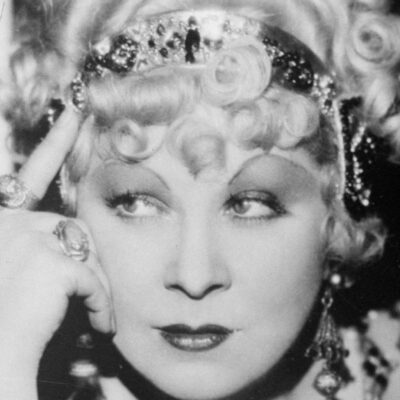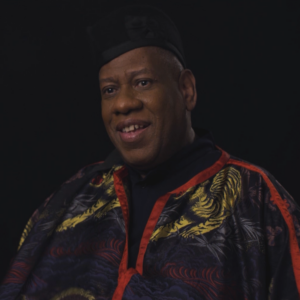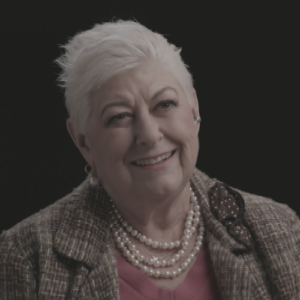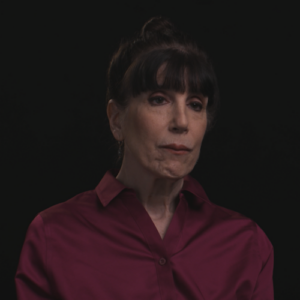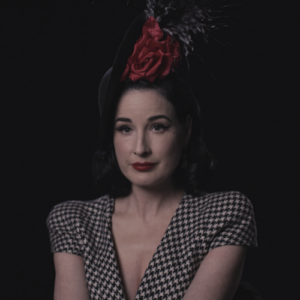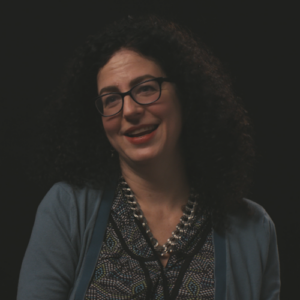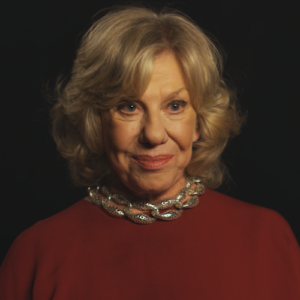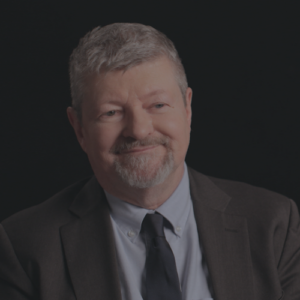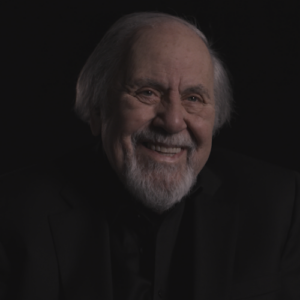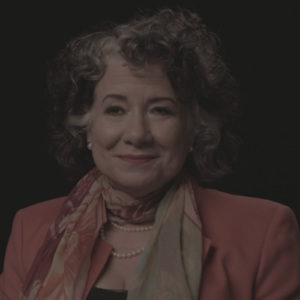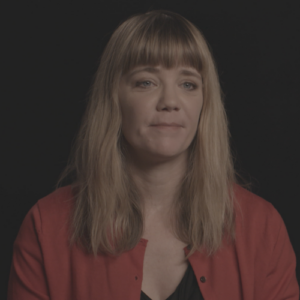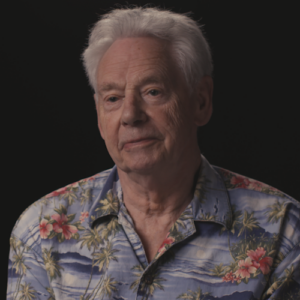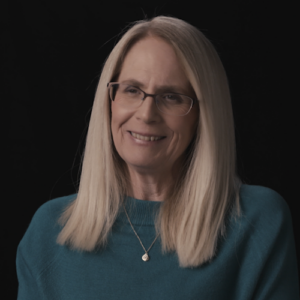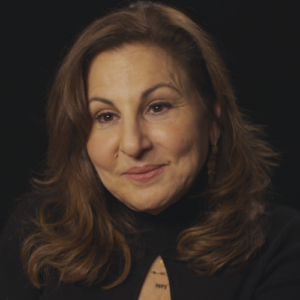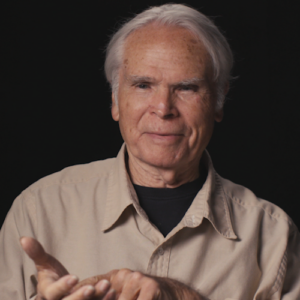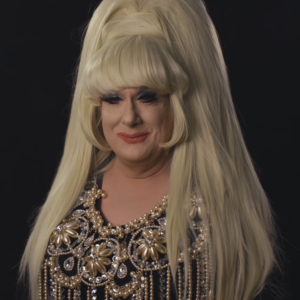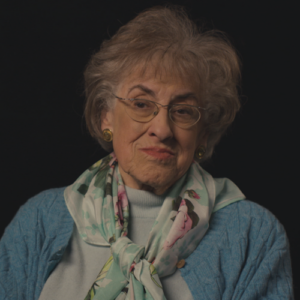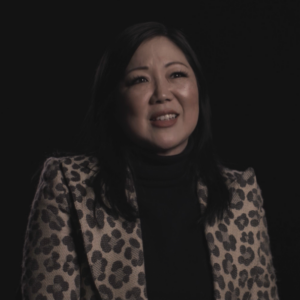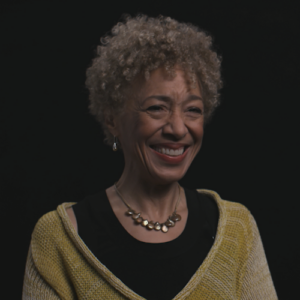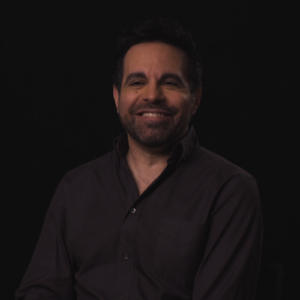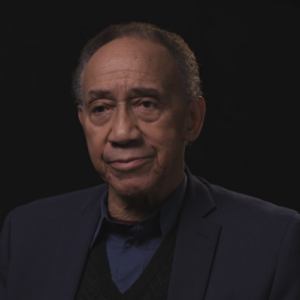Speaker 1 Know, to define the term woman’s film is one of those issues where everybody thinks it’s going to always be for women. No, it’s about women for everyone. And that was the great thing about it is sometimes people did get a little bit enlightened by watching one of them, but they’re essentially films that put the woman at the center of the story universe. They tell the woman’s story. They tell the woman’s troubles, her anxieties, her crises, and they seek to connect to people in the audience, both men and women, about that issue, but also kind of address them and maybe allay them and change them. The issues they have, the frustrations, the terrors the woman has. And there are all kinds of genres. There’s comedies, there’s musicals, there’s westerns, there’s crime, there’s melodrama, there’s all kinds of women’s films. Any film that has the woman at the center of the universe, her story, her issues, that’s a woman’s film. And because in the old days, they had so many great female stars, they made a lot of these because they were the star, they were the center, so they built it around them. So naturally, if you’re going to have a story like that with a great star, these women are out in the world doing things. I mean, at the very least they’re murdering people. You know, they’re committing crimes, they’re editing newspapers, they’re flying airplanes. They’re they’re solving the problems. So a lot of times, like I saw these films when I was a young girl growing up, and the issue is often at the end, the woman would say, but wait, I need love. Let me stop flying and get down to earth and get married or something. But as a child, you’re like, That doesn’t mean the same thing as seeing the woman doing everything. Seeing women taking charge, solving their problems. Complaining. Stealing, murdering, whatever it is they’re doing, they’re taking action. And that is a thing that we don’t have as much of today as we did then, where the story centered around the woman who was played by a great dynamic, very strongly individualistic movie star. And that’s really what the woman’s film was in. The audience wanted these stories, and they weren’t just they weren’t made for women. They were made about women. And in the old days in Hollywood, the film was designed to be for the total audience. They wanted the money from the men and the women and the old and the young and the kids and the dogs. Anything they wanted. Everybody. They weren’t niche films like we have today. This film is for the teenage boy. This film is for the romantic dating couple. This film is for the old gray haired people. Sad, you know.
Speaker 2 But these films even existed during the silent era, right?
Speaker 1 Of course, from the beginning of movies, always. There were stories about women. Women, of course, were very prominent in silent film. You know, when film was born in 1895, it was not a boy. People forget this. It was not gender specific. It was just this thing. And nobody really quite knew what it was. So it was a place where women could work. They flooded in and worked. And one of the things about it that’s interesting is because it had editing in the benighted minds of some people, this was like sewing. And so that meant women could do it. So women came in. Women were thought of as they could be creative women directed, women produced, women wrote, women starred, women, cut women did stuff in these films. So of course, they thought to tell stories about women. But there’s always this is a mass art form that was trying to reach the total audience. And you didn’t just reach them by making stories only about men.
Speaker 2 Right. Very helpful. Okay. So when we start to switch from into the talkies, the silent talkies, what affected those? Well, first of all, how did that affect certain actresses in their careers?
Speaker 1 When you switch, of course, out of the silent era into the sound era, you have a big change taking place because the business vertically integrated and it becomes a business with a hierarchy. And once you get a hierarchy, the women come down here and are being secretaries and assistants and makeup people and hair people and costumes, which are forms in of in and of themselves and terribly important to the movie. But they would put that down the ladder of the decision making process. And so men began to dominate more. The effect on women in stars wasn’t that destructive because still the idea of powerful female stars and the need for them existed. But you begin to get a change instead of having the very ethereal, beautiful looking, romantic female or the little perky little girl female or whatever. You begin to get women who are you’re going to hear their voices and they’re going to sound tougher, they’re going to sound cheaper, they’re going to sound more abrasive or whatever. You begin to get a different type of star because you begin to get a different type of movie. You begin to get a level of realism that also existed in the silent film. But now you hear the sound of it, you hear the machine gun, you hear the talk of the streets, you hear things, and you get a different kind of star. So one of the first things that happened in the sound era was that women and men, of course, who had distinctive voices began to be really popular. And of course, that is very well illustrated by Mae West with her unusual cadence and the sound of her voice and the rhythm that she brought to things. But. A certain kind of woman star began to disappear, the more kind of otherworldly softly. You still have those. But everything shifts. Some women lost their careers because their voices didn’t seem to match their looks. Vilma Banky, who was a beautiful, softly romantic leading lady in silent, actually had a somewhat guttural voice with a heavy European accent, and it just didn’t work. But she’s one of the few. The idea of people, a lot of people losing their stardom because of sound is kind of an exaggerated idea.
Speaker 2 This is sort of a bigger question than we’re going to get to. Some specific actress is in a minute. But can you talk about how portrayals of women in the thirties and forties were generally sort of more positive for women than they were later on? Why was this.
Speaker 1 When Hollywood was developing female stars? They had to develop more positive senses of women, their lives, their stardom, their issues. When the system flopped and failed, it began to disappear. When Hollywood collapsed as a studio system around 1960 as slightly before, slightly after then is when the roles for women began to disappear. And for for some reason, not exactly reasons anyone can quite pin down, although there’s a great deal of punditry about it. Films began to be about men and men having fun together, men having adventures. And we enter into sort of what I call the bimbo age. I mean, where you just don’t have these strong dominant women who are setting role models of activity and thinking and decision making and accomplishment that we had earlier. You also, because Hollywood isn’t developing stars now, manufacturing them in the way they did, you just don’t get as many female stars. So there’s a big disappearance of the famous kind of great women stars that we associate with the thirties and forties, the Crawfords, the Dietrich’s, the Davises, the Stanwyck’s, those kinds of great women stars with their longevity and their dominant personalities disappear.
Speaker 2 What are some of the themes of those of the films of the thirties and forties? What was happening to these people and characters is there? Or was it completely diverse?
Speaker 1 In the thirties and forties? Women have a lot of diverse adventures, A lot of diverse things happen to them. Anything that can happen to a man could happen to a woman. Anything the man did, a woman could do, actually. And that’s the thing about it. I mean, suddenly women were people who were in the world doing things. It was not just a man’s world. And that’s the difference. Whereas the narrowness of the role of woman begins to appear more later in history. And let me think a minute about that. I guess that’s a good enough answer.
Speaker 2 I mean, is there a sense of of of women and maybe this comes later having to choose between sort of liberation and love?
Speaker 1 Always the story of a woman is grounded in the idea what is a woman’s job in the world? What is her life? And in order to make that simple and to be able to grounded in a plot, the answer was love. Your job is love. The woman’s job is love. And so these films are not exactly always a quest for love. But whatever the woman is questing for, she finds out. But wait. Love is better. So, you know, to be successful, a movie in a mass art form had to both connect to what the audience was and connect to what the audience wanted to be. So for the woman viewers, they’re connecting to what they had and could do and did do. But they’re also fulfilling a fantasy of what else they could do. But they want to bring it back around to the comfort zone so the woman doesn’t go home miserable and say, Well, I’m not going there again. It’s too frustrating. So that is how the movies are constructed. Women were portrayed doing everything. I mean, it’s amazing sometimes when you look at these old films how women, you know, are socking the villain and and rescuing the child who’s choking to death, you know, whatever. They can do everything. But they also need to find love and embrace love. Although, oddly enough, there are a lot of films that don’t in that way that end with the woman remaining independent.
Speaker 2 Are there is there is was there a sort of set of personas among these famous actresses in this time, like a distinct set of identities?
Speaker 1 What Hollywood always wanted to do, and this was the genius of the system, really was they needed to create actresses and actors who could be developing a persona, what they thought of as stardom, really. But as we think of this persona, the audience had to believe an actress in a certain kind of role. They defined her by that certain kind of role. They believed that was who she was, possibly even also off screen. And that is how they wanted to see her. Interestingly, if you think of Greta Garbo and Marlene Dietrich two Exotics, you don’t think of those people as mothers, but they both played mothers. They were on screen as suffering mothers. But who remembers that? Throw that away. Let’s keep the good part so people would discard stuff. Humphrey Bogart played a crazy, mad scientist doctor with a streak of lightning in his hair. Who remembers that? No. We want Rick from Casablanca. The public embraces and remembers what they like. The business recognized that and started then just creating vehicles, movies that gave them the opportunity to play that role, which was their persona.
Speaker 2 Great. So let’s talk about some of these personas before we talk about Maise. What is the Greta Garbo persona?
Speaker 1 Greta Garbo, for instance, had a persona in retrospect in particular as something elaborately mysterious, other super beautiful, unattainable, just Garbo. That’s who she was. Garbo. Forget the Greta. Anybody can be Greta. Nobody can be Garbo except Garbo. But, you know, she did play wives and mothers. It’s a strange thing, but she fits best, you know, in an exotic setting, wearing exotic clothes and wrapping herself in mink and wearing orchids and doing all these wonderfully exotic and European kind of things. So she was mysteriously beautiful. She was the unattainable. She was the thing you went to the movies to see because you sure as heck weren’t going to see it anywhere else.
Speaker 2 And Marlene Dietrich is the same.
Speaker 1 Marlene Dietrich is different from Garbo because although she’s also exotic European, she’s androgynous and she’s missed. She’s funny about it. She doesn’t seem to need mystery, even though she exudes mystery. Garbo needed it. Dietrich did. Dietrich has humor. Garbo, not so much. But Dietrich as the androgynous character is. I always think of her sort of coming out looking absolutely fabulous and sort of saying independently to me from the screen, I’m a better woman than anybody in the audience. Then she puts on a tuxedo and she says, And I’m also a better man than anybody in the audience. It’s just like she has that wonderful, ambivalent, androgynous quality. And audiences like, you know, Hollywood was smart. They knew about reaching everybody, and they’re often ambivalent. They let it. You can see it this way. You can see it that way. They put a lot of that in these movies. And Dietrich represents that, in essence.
Speaker 2 And then Jean Harlow.
Speaker 1 Jean Harlow died when she was 26. She didn’t have a lot of time to really develop. She played a lot of different kinds of things. She started out just as a beautiful woman. Then she played rich people. Then she played got gun models. Then they developed her humor and then they started trying to make her more respectable. All this in a matter of like a decade. So she has a lot of different qualities, but she is essentially fundamentally a sex symbol. She represents, you know, the free woman whose sexuality is there and who’s not afraid of it. Dietrich And even Garbo also have those qualities, but in a different way. HARLOW Is the American version of that. And when they found to make her sexy and funny about it, then she really began to hit her stride in a movie like Red Dust. But she was cut down very early in life. So her persona isn’t so fully developed over a long time. But basically sex symbol is what she represents.
Speaker 2 And then finally, Barbara Stanwyck.
Speaker 1 Barbara Stanwyck is a totally different woman. She is an actress. She can play anything. She can sing and dance. She can do comedy. She can do drama. She can ride a horse and do westerns. Whatever you want from her, you get it. What? She has a clear persona of a tough, independent woman who will survive in her early days. She plays in a lot of soap, more soap opera ish films where she suffers, but she gets tougher as the years go by and she’s strong and independent and a woman who can cope. She might suffer, but she will cope. She also, of course, in her own career, went freelance early in the thirties so that she had more opportunity to select her own films than someone like a Jean Harlow who was under contract to a studio. And that’s something about Stanwyck that’s important.
Speaker 2 Okay. And then how does Mae West?
Speaker 1 Mae West, You know, everybody’s got kind of a simple idea of Mae West. It’s kind of like, you know, she’s almost in drag, She’s funny and she’s putting down men and she’s representing. Liberation and women taking charge of their own sex lives. And, you know, but there’s a lot more to her. She wrote her own material. She defied censorship. She kept going till she was a really old woman, still playing essentially her earlier persona, which is pretty actually pretty astonishing. She was 40 years old before she ever appeared in a movie, which is shocking when you think about it. But she’s a woman who understood the rules of the game. Said, I won’t be playing by them. I will, however, be playing a game that you might want to focus on because you, too, could play this game. And she was funny about it. She was funny about it. And thus that made it palatable for people. People could enjoy it and they liked to see her putting down men, taking charge of everything, holding power, holding power. When she has to go on trial, she tries her own case. I mean, it’s fabulous. And I love, like what I like in a mae West movie. And I’m no angel. She comes out in this tight, flashy, fabulous gown and she says, Is it a flash or is it a flash? And her maid says, well, it’s very beautiful. And she says, Yes, it’s beautiful, but is it a flash? And, you know, that’s so smart, because there were lots of beautiful women. Beautiful women were a dime a dozen in Hollywood. You had to be more than beautiful. And Mae West was more than attractive, more than funny, more than smart, more than different, more than unusual. She was a flash. She was a flash. And that’s because she defined herself. She defined her position and she defined her world. And you know what? That’s still an amazing thing for an a woman to be able to accomplish. So she’s a one off. There isn’t anybody else like her. She is totally unique, totally unique.
Speaker 2 You know, I love in your book and you talk about watching movies when you were really young. Yes. Mm hmm. Being inspired. Do you remember seeing a mae West when you were young?
Speaker 1 I remember seeing Mae West for the first time. I was born in 1936, so I didn’t see Mae West until the heat’s on in the forties. And my little chickadee and I was very, very little when I saw those films. So I saw revivals of her in, you know, maybe 1953. And I loved Mae West. I think I thought she was hilarious and I loved the way she put other people down, other women as well as other men, the way she had. She was fearless, but so easy with it, so not mean about it. So not she was not cruel. She was not a horrible harridan. She’s just funny. And she rolls. She rolls. You know, the two great works in American film belong to John Wayne and Mae West. They roll and he rolls his way in his direction. She rolls her way in hers. I love it. But she’s just wonderfully funny. And I think that that’s and I see Mae West as a minimalist. She doesn’t do very much. She just kind of, you know, and then she kind of and then she says, you know, sucker, I mean, just minimal. Just minimal. But so clear to everybody in the audience what she actually meant and was doing and even thinking.
Speaker 2 So compared to those other actresses, I mean, she was fairly radical in what she was putting forward. Yeah. Do you have a sense of and this may be hard to answer, but whether or not this was a conscious effort to make people think differently about men and women, or did she just sort of see an opportunity to become a star and have a persona and saw that people would like it? I think it was conscious.
Speaker 1 You’ll never know to what level Mae West really was thinking in feminist terms. This is my opinion because she did not come out as a real feminist statement person. In fact, she could be surprisingly what we might think of as old fashioned in the things she said and did. So, you know, this is a mysterious kind of thing from our era. We’re always trying to get things figured out and put it in a little box and put a lid on it and tie it up. That’s good. And, you know, it’s just not that simple when you have someone born when she was born in the late 1800s who comes into show business by 1911 and in the toes appears in a play she wrote on Broadway called Sex, you know. Wait, what? Where did this come from? Well, it’s like anything that’s great and different. Where does it come from? Why did it get there? How did it get there? You don’t really know. But what we do know about her was she was clear minded about what she was doing. She understood the parameters of what she had defined for herself. And she did define it for herself. She made Hollywood let her write her own stuff. She took charge of what she was doing. She fought for what she wanted. She wouldn’t do it if it wasn’t there. And so you have something a model here where you see a woman could run her own show. So was that her being a feminist? Well, she isn’t really much of a feminist, but she does show women some truth. She shows them that she reminds you that this is a world in which, you know, men are telling you the rules. There is a double standard. But she not only destroys the double standard and ignores it, she kicks it around. I didn’t say that.
Speaker 2 Right.
Speaker 1 Tell me what I said. She’s got this too good to pass up. Yeah, but she saw that double standard, and she didn’t just defeat it, she kicked it around, and she had fun doing it. See, she never loses the humor. She never has to be too angry. She’s just like the power is mine. She shows that to women. And that, of course, is a strongly feminist statement. She says, well, if they can pick, why can’t I pick off? If men can do this, why can’t I do this? But she makes it easy and she makes it natural and she makes it funny. So this is a whole a feminist. She’s not teaching us anything except indirectly. Mae West implies she does it by implication. She implies she doesn’t directly tell and directly dictate. And she doesn’t cry over it. She doesn’t make it a tragedy. She just makes it a possibility. And that’s a whole different thing.
Speaker 2 All right. Let’s talk a little about comedy, the power of comedy. You say in your book, Comedy Unleashes a Woman. What do you mean by.
Speaker 1 Comedy on film? Unleashed women. Unleashed a lot of these actresses. Because if it’s comic, it’s safe. If it’s comedy, we’re going to laugh at it. If it’s comedy, then we don’t have to feel so threatened by it. It’s women doing things in comedy seem to be okay. First of all, it did make everybody laugh, men and women. And they don’t feel as threatened by then. And it’s a good way to learn a lesson. So the actresses got to be freer, they got to be more physical, they got to challenge authority, they got to run around places, put on weird outfits, pretend to be someone else, take on dual identities. I mean, the kinds of things that men were doing that freed them to explore a different kind of world for a woman, a different kind of world for self. A woman pretends to be her sister. A woman pretends to be her cousin. From Peoria. A woman pretends to be someone else, which means now she gets to be someone else and that someone else might not go by the rules. There’s no risk because she’s really still who she is. So it’s an unleashing for everybody, the actresses, the audience. And it was fun. It was not dangerous because it was fun.
Speaker 2 But how? And in May’s case, they didn’t specifically allow her to skewer men just to turn the tables on power that.
Speaker 1 We often see in old Hollywood movies, starting in the silent era, even with Mabel Normand, that women use comedy appearances to really kick the butts of men, I mean, literally and figuratively, women scheming to bring men down. Well, if if it’s a comedy, then everybody can enjoy it. If it’s a tragedy, somebody’s got to pay. Someone is going to have to pay. And that in those days was going to be the woman who did it. But that’s not necessary in comedy. It’s a whole different structure. So women taking over the power and reversing things. Comedy is often about reversal. So if the woman becomes the dominant person, if the woman is tricking the man, the woman calling the shots. Any of these aspects that you have, then it’s comedy, it’s reversal. And people like that, you know, and but it feels safe. It isn’t as threatening because it doesn’t mean that the normal world has been destroyed in a comedy form. People take it as the other, that it can be restored. People don’t see comedy as the end of the universe. That comedy will endure and everything will collapse. They see tragedy as the end of the universe. Nothing can endure. Nothing can be restored. So that was a really good system for that to happen in.
Speaker 2 You know, one of the things you see in your book is May and I think also theatric. They never suffer.
Speaker 1 People, actresses like Mae West and also Marlena Dietrich don’t suffer. Dietrich has a little suffering from time to time, but she overcomes it very neatly. But Mae West doesn’t suffer, and she makes other people suffer a little bit. But she’s not mean. She doesn’t. She’s kind of like, Yeah, you did wrong. You got to pay for it. But she’s about letting it be. She’s about she’s partly about. There’s natural instincts here. And let’s not repress them. Let’s not hide from them. Let’s not be afraid of them. Let’s let them roll. And that’s the difference with her. But her films are not about the tragedy of being a woman that’s going to hold you down, hurt you, pain, you restrict you. Her films are about, hey, you know, get up on your feet and get out there. And if you do that, you can find your own way. And by the way, don’t let people make you suffer if you have to make them suffer. And so, you know, that’s it’s different. It’s funny and it’s nonthreatening in a way. She does not have a threatening persona. She does not threaten.
Speaker 2 That’s interesting. You know, I’m kind of curious to know if men in her era or women actually is she plays the sex symbol. But was she actually perceived to be sexy? You know, there’s this idea that like to be a desirable woman, you have to be sort of passive.
Speaker 1 Yes. Right.
Speaker 2 So would she have been sexy?
Speaker 1 Well, you know, we can’t reconstruct the audiences of the past. We can only kind of think maybe what they thought. But you look at like I showed Mae West movies to people all the time. And so one of the things I do know is that nobody seems to perceive her as a sex symbol. She seems to be a symbol about sex. And those are two different things. She says, Now you see me here. This is what they think of as a sex symbol. But let’s think about what that means. Although she’s not doing that in this big capital letter. You know, now we will have our lesson and eat our spinach, you know, kind of thing. But I don’t think when a 40 year old woman enters the movies built like she’s built, even though it’s an hourglass figure, that’s no longer what people think of as sexy, even then wearing these weird clothes. Could someone explain the Mae West wardrobe to me? To this day, I do not understand why she’s dressed the way she’s dressed in her movies. I don’t get it. But anyway, she is not a sex symbol in that regard. She’s there to be remind you that there are symbols about sex. And that’s just a different approach. And I don’t think anybody thought, wow, let me go to bed at night and dream of Mae West. If they did, they were laughing in their sleep. It’s a different deal.
Speaker 2 It’s interesting, though, because it does seem like passivity and sexiness in a movie star go hand in hand here, more aggressive like she was meant you couldn’t be sexy.
Speaker 1 You know, I actually don’t agree with that. But it’s like, you know, sometimes sex symbols who are women are passive. And that seems to be beautiful. But the American woman on film, as exemplified by the movie stars we created over time in this country, are a bunch of pretty feisty women. They’re dominant, they’re active, and they’re tough and they’re troublesome and they are not. Tell me a really passive movie star. Would that be Marilyn Monroe? She I don’t know. I mean, women are see, when you are the center of the film universe as a movie star, you have to do something. If you’re passive and nothing happens, it doesn’t work too well. Some women are passive, things happen to them, but we create a lot of very feisty, kind of domineering, even, you know, active women in in American movies. Who are you thinking of?
Speaker 2 I guess I’m just saying, why isn’t she sexy and why? Oh.
Speaker 1 All right. I guess so. No matter how liberated any sex symbol or whatever you want to call it, movie star is, you’re still up on the screen, bigger than life. And people, both men and women, expect you to look a certain way. Mae West isn’t all that beautiful. She doesn’t have the figure of her time. She doesn’t present herself seductively in that regard. She’s not she’s she’s keeping you know, you don’t have a lot of passionate her love scenes are often funny rather than sexy. She doesn’t do that kind of thing. So she’s not sexy Because I think just to go back to where we always have to begin as women, she’s not a man’s idea of a sexy woman. They want someone younger, someone less motherly. Look, I mean, she she just doesn’t, you know, Come on. She’s not young and easy to. And for one thing, she’s too tough. She’s too tough.
Speaker 2 She’s not vulnerable.
Speaker 1 Yes, I can say that.
Speaker 2 Yeah. Yeah. Talk about that is also like it’s impossible to. Yeah. There’s. There’s so much something not human about. Yeah.
Speaker 1 Mae West is one of those people in the movies who isn’t a real person. In some ways, she represents something. And yet because she’s not into polemic, it doesn’t she? She’s still a character. She’s always the same character. But, you know, if you think about I’m no angel, when she sashays out and walks down the runway and all the men are ogling her and Googling of. And she’s like. And then under her breath, she says, Suckers. I mean, that was her. She’s not vulnerable. She’s not easy to take. She can’t be hurt easily. Mae West cannot be had. She can take you, but she can’t be had. And that’s just something you don’t see.
Speaker 2 Great. Can you just talk on the set some context for her coming to Hollywood in the early thirties? I mean, you’ve already mentioned that she was older. I mean, that would be almost unheard of now.
Speaker 1 Was was well, Greer Garson was definitely 40 when she came. I don’t know. Maybe not.
Speaker 2 Yeah. I mean, how unusual was it because she had this persona? Was it sort of made it?
Speaker 1 Yeah, Well, Mae West was able to come to Hollywood because she had something to give. She had created a character, She had had success. She had generated buckets of publicity. And that for Hollywood meant, okay, she can make money for us. So they didn’t quite know what to do with her. They were a little bit worried. Is this going to work? I mean, for one thing, is it going to be a censorship issue? What she says and does so in her first film, night after night, they put her in a small role. She was in a small role. And the star of that film, George Raft, said, well, she came in and she stole everything but the cameras. I mean, which is exactly true. Everybody thinks of that as a mae West film. Nobody even remembers anything else about it. So then they knew, yes, the public will accept her. We can make money with her. And so what she brought was originality. Let’s not forget that everything that we’re saying here about her comes down to that word originality. And that’s what Hollywood likes. They can make money off her. She’s different. She’s got something new to sell. She’s giving a new approach. And it’s one we can sell the mass audience. But they were careful with. She’d done them wrong. They weren’t going to call it Diamond Little because they didn’t want to have that problem. They gave it a different title and they considered other titles. They considered Lady Lou. They thought anything but Diamond Lil. So they came up with she’d done them wrong and it was a big success. But they were careful with it. They were careful with it.
Speaker 2 Is it is it you know, people say she saved Paramount. Is that true?
Speaker 1 She did pretty much save Paramount Pictures, although, you know, these are always exaggerations. Shirley Temple saves 20th Century Fox. Deanna Durbin saves Universal, by the way. Notice three women. Hello, everybody. Three women, two women and a little girl and a strange older woman and a young girl and a little kid. All women. Somebody ought to focus on that. But anyway, she she did the money. The the film she’d done them wrong, cost very little about $225,000 to make or something like that. But it made two and a half million or more at the box office. That’s huge. So it did steady on Paramount and flowed them forward. Yes. Her contribution in that film was enormous to getting Paramount on a good financial track.
Speaker 2 Is there a way that we should understand her, her movies, her character in the context of the Depression at that point?
Speaker 1 You know, the Depression is a little bit on the outside of her movies. A lot of movies are sort of hermetically sealed off into their own little universe. And because she has the kind of persona she has, if you put it out on the streets in a real this is realistic in our depression world, then she’s going to have to be really kind of a prostitute, which changes everything. So she’s got to be in belle of the, you know, of the nineties. She’s going to be Klondike and she’s got to be sort of in the Mae West world, actually. She defines and dominates the world of her movies, and it’s a mae West universe more than it is the Depression. Although people liked in the Depression, liked the lesson they were getting from her because a lot of times in the Depression, a woman could find a job where a man couldn’t. And so that empowerment issue was making people comfortable because she was making a comedy out of it.
Speaker 2 And do we know anything about, you know, where her audience is? Largely women.
Speaker 1 The audiences of the day in general were always both men and women. The statistics that exist are not really terrific, but one of the things everybody knows is you can’t make the kind of money her films made unless both men. And women go. And remember, people took their children to these movies also. So whether women liked her more than men or men liked her more than women, I think is a very hard question to be confident to answer correctly. You can speculate. And the speculation generally among the film historians I know is that men liked her better than women. Maybe she was threatening to women. Who knows? But who knows if that’s true? I’m just saying.
Speaker 2 Interesting. Just to return to the comedy aspect, you know, it’s one of the things that’s great about her comedy. It’s not just funny or sexy. It’s really smart. The wordplay idea. Yeah. Can we talk about that? Just the intelligence. She.
Speaker 1 One of the great things I love about Mae West comedy is that it’s so verbal. It has double entendre. It has wordplay. It has repetitions that she’s just so smart. And when you think about what was her education, what was her background, Where did she learn this? Why is she so clever? Everything she says is she’s Oscar Wilde, practically. She’s a kind of low class, hip swinging Oscar Wilde. You know, she’s witty in a wonderfully original way. So, you know, she did start around vaudeville at a very early age. And vaudeville had a lot of really sophisticated verbal comedy, often aimed at low targets. But she learned she learned that an audience hears and that if you play with it, you can get a laugh. And I think she must have learned it there. But here you have a woman of intelligence. You cannot define a career in an original way, maintain it, move it from vaudeville, build to Broadway to Hollywood, and keep it going until you’re an old woman and maintain that image and have everybody know what it is. You cannot do that unless you’re intelligent. No one was managing. No one was managing her. No one was figuring it out for her. She had no mentor. Nobody is explaining. Here’s what you do, Mae. She was the one. She was the person doing that. She’s really a completely unique presence.
Speaker 2 Were there any female actresses, contemporary, writing their own material at that point?
Speaker 1 Writing their own material? Not. Not, no, not really. Not really. They just.
Speaker 2 They.
Speaker 1 You know, most of the great stars, really almost all the great stars that we think of from that era are not writing their own material. They’re not writing their own dialog. And they’re really not creating their own personas. They are, in a way, as they act and adapt and find what they can do. But somebody else is managing the process. Somebody else is designing their clothes, fixing their hair, putting them in roles, deciding they like you in that role and pulling it out and starting to make lots of movies with that role. That is a process that some women understood very well. Women like Claudette Colbert to a degree. Rosalind Russell, although her husband was her mentor, Joan Crawford certainly understood it, and most people don’t realize she did. She knew the difference between herself. A poor little girl sometimes called Lucille Lesueur, sometimes called Billy Carson, got renamed. She knew she referred to Joan Crawford as this other person. I’m going to. I knew her well. I’m I’m going to put on my Joan Crawford suit. She would say for her. She understood it, but a lot didn’t. But Mae West is someone who who clearly defined her own process.
Speaker 2 You know, you have in your book the best line of your career. Do you remember what you said about a lot of people?
Speaker 1 Yes. Right. I love to say that. It’s just so great. After she throw well, I have so many moments of Mae West that I love. She’s fabulous, really. And she just gets more fabulous. The more you watch her, the more you pick up her little nuances. She throws a rival woman out, a stuffy rich woman rival. She throws her out of her apartment, and then she comes sashaying back in and says to her maid, Beulah, peel me a grape. This is my favorite line. That’s genius. That’s genius.
Speaker 2 Is there anything others that you remember that you love?
Speaker 1 I love me. Well, I like when she says it’s not the way. It’s not what I do. It’s the way that I do it. And what I’d say when I do it. She’s just. I like her. She’s very, very funny. It’s not the life. It’s not the men in my life. It’s the life and my men and goodness had nothing to do with it. Honey, she has so many great ones, and, you know, they’re. They’re charmingly funny. They’re not mean. She’s not mean. And she was able to accomplish a lot of what she did, be who she was, because she didn’t need the anger. She doesn’t play the anger. She plays the situation. She shows the difference between the male role and the female role. She shows you the world that you’re in, but she doesn’t play the anger. She plays the annoyance.
Speaker 2 Yes. She also keeps her Brooklyn accent. You know that’s true. Is there something to be said about that? That is a comedy there.
Speaker 1 Yeah. She Mae West voice her sound, her Brooklyn accent that she never lets go of and keeps that class thing going for her, her cadence, her things that she throws in and she the voice, the early sound years where she rose to her fame that most of the comics are about voice. There’s an enormously important aspect to that. And in fact, so many of the really famous movie stars have very distinctive voices, men and women. You know, the sound that they have. You can understand it. You can imitate it. That was a really important aspect of the transition to sound where she rose to stardom. The fact the audience could understand she’s not a high class woman. She’s one of them. She made no attempt to change to get perfect diction. She just talked like who she was.
Speaker 2 I know you’ve also written a lot about marriage.
Speaker 1 Yes.
Speaker 2 I wanted to ask, you know, she has these quips in her movies, like marriage is a fine institution, but I’m not ready for an institution. You know, saying that until the 1930s. How transgressive was that?
Speaker 1 Mae West is a person who really takes on marriage. I mean, for instance, she says, you know, it’s a great institution, but I’m not ready for the institution, for an institution. But marriage was always something that Hollywood was very careful about. I mean, divorce was uncommon in those days. It was not easily accepted. If there if you did divorce, it was a huge decision. You were always going to be marked with that. And the code requested respect for marriage. So for her to say, I’m not interested in being married, I’m not married, that’s not my goal, because the goal of the romantic comedy, the implication is always marriage. At the end, they’re together, they love each other and offscreen. The next step is marriage. So the marriage movie itself, of course, is very different because it’s going to be about misery because something’s got to go wrong or you don’t have a plot. So marriage, for her to take the attitude, why should I be married is really something. And that is linked also to the Depression, because it means she doesn’t need a man to support her. The idea that a woman can be independent sexually is pretty daring to be independent in a career job is even more daring. But the idea that you can you don’t need a man for money, you don’t need someone to support you is huge. And she was very you know, that was transgressive for its time. You know, people talk a lot about the code, but no one, not many people actually read it.
Speaker 2 Well, yeah, I mean, I guess just to back up because I don’t want to go into all the history of the code. No, no. But as it was affecting women’s movies and. Yeah.
Speaker 1 You know, people talk about the code a lot in pre-code and after code. Nobody bothers much to read the code. And the code is kind of interesting because you see right away that there’s fudgy wedgie here. I mean, the thing is they’re very specific about drug addiction. They’re very specific about no showing children’s genitals. They’re very specific about certain things. But when you get over into, say, marriage, it begins to get a little wobbly. They say the sanctity of marriage should be respected and use it with care. Careful. Be careful. Be thoughtful. In other words, you can try. But they say if you need adultery for plot purposes, you know, you need to be, you know, have respect. It’s like it gets a little in it. It becomes an area of interpretation. Certain things thump. No, no, no, no. But those are the things you would expect. No guaranteeing somebody on screen. You know, but all these imaginary things about people getting in bed together and women and slips and stuff, that’s kind of not like it’s all about using common sense. And it it opens up areas of interpretation. Marriage is one of those. With sex they’re clear about. They don’t what they call it. Not homosexuality, but they call it perversion. No perversion. Be careful with children. Prostitution is a no. So you’re going to call it dancehall girl or something. But everybody. You’re not kidding. Anybody here, you know? White slavery? No. And that affected. She done him wrong. They have to become counterfeiters instead of white slave. But they just made simple changes. And nobody in the audience was confused about what this really meant. Nobody in the audience was confused. People understood.
Speaker 2 Do you know if there was an attempt to tack on a marriage at the end of May’s films to sort of make an errant woman pure?
Speaker 1 I have I read the scripts, I read the files. You know, I, I can’t even remember, but I’m pretty sure she would have. She was particular about things that affected her sense of herself in her character. And when she signed a contract, Hollywood knew what that was going to be. And they had sort of they wanted her for herself. You know, it’s not a case of let’s have Mae West and let’s make her a Girl Scout. They wanted Mae West for Mae West, which was not about marriage specifically, and she’d done them wrong. They did add when at the very end, Cary Grant says, you know, after you’ve served your term, you know, for what you’ve done wrong, then we’ll get married sort of thing. There’s an implication. But her movies, you know, are not marriage movies. And they’re not about marriage. They’re just not. And so, you know, I think a lot of times people have a sense of Hollywood, of the past that that doesn’t understand how much they understood and the audience understood between them, the game they were playing, the audience. They were not idiots. The people making it were not idiots. They lived in a time of perhaps we might even say better manners about certain things. Okay, we’re not going to swear. We’re not going to do this. But you’re going to understand. We’re not going to show people in bed naked having sex, but we’re going to go over here to these fireplace flames. We’re going to go over here to these fireworks. And everybody knew what that meant. It was an unwritten understood language. And films are visual. They are a visual language. And everybody spoke that language. The people speaking from up here and the people in the audience hearing out there. So I don’t think anybody was worried about people needing Mae West to be married. I think they actually felt it would be wrong for her to marry. Nobody would have believed it. And that wasn’t what she was giving the viewer. So I don’t think they made many attempts about that. They were, of course, paying attention to the language, the occupation, worrying about the idea of prostitution, whatever, cleaning up the white slavery, making sure things were not. But, you know, they didn’t do too much about her innuendo or her double entendres. They left them. They left them.
Speaker 2 Do you think some of the censorship was not so much about the sex and the innuendos, but about this independent woman and how dangerous that could be?
Speaker 1 I think in a world of Hollywood where women are working, women are doing what they want to do. Women are having affairs. Women are having abortions. Women are doing the job, having the money, buying their own houses, supporting their families. Nobody in Hollywood was worried about that idea, which was.
Speaker 2 All of the sensors that were the sensors.
Speaker 1 Oh, I don’t think the sensors work well. I thought you meant the business.
Speaker 2 I’m sorry. Sensors were sort of threatened by this independent woman.
Speaker 1 I don’t think so. You know, I. You know, look, I. I have is somewhat. Well, maybe you want to turn off not waste your film, but it’s like, you know, where I grew up, women worked in the 1950s. You know, women were professors. They were doctors. They were lawyers. We played basketball. I still don’t know where this 1950s that everybody tells me was the 1950s is. Evidently, I grew up in the Twilight zone. So one of the things I know is that Hollywood was a place of working women. It was and women had power there. They sometimes had to get it in a very sneaky way. The censors are a part of that system, so I don’t think all they worried about was if the film went out to a small town and somebody complained about the language or the sex, somebody wouldn’t spend their dollar to go. That was all they cared about. As far as any messages about liberating women or anything, they didn’t give a darn.
Speaker 2 In the context of of Hollywood was May was taken seriously. Was she considered a star the way the rest? Was she the in the Hollywood elite?
Speaker 1 Mae West has a very short career. The entire thing is only 12 films and two of them are made much later. So basically, she’s got ten movies In the first one, she has a small part, which means, you know, like nine movies. I mean, it’s very small. So she was always kind of an outsider to Hollywood, to the system. She wasn’t married. She she wasn’t a part of the social world. She was off by herself, kind of. She was always working, doing things, accomplishing things. But I don’t you don’t see if you look at old movie magazines of the days, they’re all out it alleged parties together, Night Club. You never see Mae West anywhere in these things. So I think she was different even in the world she was working in. And I don’t think that her stardom lasted long enough. Although she was top ten box office in 1933 and 1934. And that means they would have taken her very seriously. But I don’t think she was too old. She came in too late. She was too independent to be in control of her own career. She was not really a part of the ongoing system they had, even though she was a Paramount star.
Speaker 2 What do you make of the fact that she she tried and and succeeded in maintaining her this sex personality into her eighties?
Speaker 1 I just think it’s so fantastic that she remained Mae West the symbol of sex and the way we think about it and the way we act about it. Until she was in her age unto death with her men around her wearing those same weird clothes that she had worn, those same wigs playing that same role. Isn’t that fantastic? You know, talk about cheating, the aging process. Talk about cheating. The time changes. Talk about cheating, everything. This is how strong her self-definition and her self-confidence really, really were that at the age of late seventies, she stood right up and she was Diamond Lil. How the heck can you make the thing you were in 1926 still work in the 1970s? This is how strong it was. This is how original and unique it was and this is how much she owned it, knew what it was and could deliver it. It’s phenomenal.
Speaker 2 What do you think people thought of that, though? Heard still doing this in the seventies. Was it sort of like.
Speaker 1 She, Mae West, in doing this, of course, skirted the edge of disaster. And for many people, she was a disaster. They were embarrassed. They were shocked. They were like, no, they did not want this. But she didn’t care. She still did it. And, you know, she did pull it off. It’s phenomenal. It really is amazing. But that doesn’t mean everybody was embracing it and loving it or thought that’s what she would do or should do. But if you think about how strongly she defined that thing, what would she have done? Play a grandma, play an old school teacher? What would she do? She had to remained that the glory was she had the guts to do it, to remain. It’s great.
Speaker 2 Is there any modern day equivalent of her?
Speaker 1 I don’t see any modern day equivalent of her because nowadays what’s the point? We don’t need somebody to tell us We can be sexy. We don’t need somebody to tell us we can get jobs we don’t need. The role that she played is no longer necessary. We have nothing is left to chance now. I mean, you know, everything is out in the open. Everything. What she what the role, what she can do for us is teach us as women or men or transgenders or whatever, that we can be who we are, that we can be who we want to be, that we can have the courage to think differently, that we can challenge, and that we can do it with humor, with pride, self-confidence. What she says is what we all know and think we know, but none of us can really do. Be who and what you are. Be proud of it. Give it out there. Enjoy it. Don’t be angry about it. Try to try to just live with it. Share it. It’s a great role model in that regard.
Speaker 2 Yeah, I definitely think she’s still relevant and that yeah, you can get something.
Speaker 1 Exactly.
Speaker 2 Sex and.
Speaker 1 Yeah, yeah, yeah. Well, yeah. No, she will And she’s confident about she she’s talking about she’s talking about more than just be a woman grabbing power dynamics. She’s talking beyond that at a higher level. Really. She’s saying whatever. Whoever. Whichever. Anything. Just do it. Feel. Do it for yourself. It’s not. It’s not. It’s not. I hate to say this as a woman. It’s not as small as being a feminist, but, you know, it’s not that. It’s this. And that’s a big difference. Because what she has to tell us is bigger than just about women having power over sex. It’s way bigger. Way bigger.
Speaker 2 Right. Let me just look here and see if there’s any other line that you can jump in if there’s something you want to follow up on. Yeah. One thing you were talking about a minute.
Speaker 3 Ago with her in terms of her continuing to kind of raise that percentage, raise how people responded very differently to it. Did those people break down along any lines like was it women of a certain age responded this way and gay men took it that way.
Speaker 1 Or I’ll just say something, you know, as she aged and maintained this quality of herself. You know, a lot of people wrote about it and there didn’t seem to be any specific kind of grouping to it. It wasn’t women who rejected it or knew what to think it wasn’t. But gay men tended to like it and understand it because, you know, it was about things that they could relate to. A lot of men were appalled by it, I think, because she didn’t look like an attractive young woman. So why was she acting as if she was one? Women were sort of like not paying attention, but I think it was individualized response in general. There were people of all kinds of categories that really respected her for her real hot spot in remaining as Mae West as creating a brand and maintaining it to death. So it’s hard to sort of break it out into groups. You people want to do this a lot where Hollywood is concerned, they really want things to be simple and in boxes. And when you go in and really study it carefully, it often doesn’t track out that way. So it’s hard to say who was accepting or not accept, but some people wrote about it. Male Some male critics were very vocal against it. But it’s it’s, it’s hard to pinpoint. Mae West easily. She’ll surprise you every time. And the people who supported her and loved her. It’s not simple. And I don’t know if that was a very good answer.
Speaker 2 That’s good. I mean, when we talk about aging, I always think of Madonna. Yeah, like this last taboo. Yeah. Breaking of I’m going to be up there in no clothes and I don’t care. People still respond with disgust to that to her. And I’m wondering if that’s still is as a society, something where we can’t really get.
Speaker 1 Well, I think that’s really smart. I, I if you think about Madonna today saying I’m going to do the Mae West thing, I’m going to be Madonna when I’m 90, and that means I’m going to be on stage naked being Madonna. People are not going with that. And Madonna created a very strong persona for herself. And she broke a lot of barriers and a lot of taboos, but she’s not being quite able to keep it going. Now, one of the differences is Mae West could move into her apartment house, keep out of the way and control her publicity and come out when she wanted to and set things up the way she wanted. You can’t do that anymore. So could Mae West do that now? It’s hard to say. Remember, Mae West hid away a lot of her life, although she was out doing things. She was in Las Vegas. She she was out there. But, you know, it’s hard. But those are two things to think about and wonder about it. Are we more obsessed with youth and beauty than we have we made any progress? Well, apparently not. And that’s kind of depressing, really, if you think about it. If Madonna could be young again, then we’d go and see her. I mean, it’s a little bit depressing to think about that. We still have these taboos about women aging, about their bodies, aging. We’re still there. Will we ever not be there.
Speaker 2 Or are we getting worse? Yeah, Yeah. Interesting. You know, one of the challenges of making this film or any film about a celebrity.
Speaker 1 Definitely, yes.
Speaker 2 Is how do you really get under there and understand who this person was? Oh, that feels really difficult because her person. Yeah, sort of morphed the stronger.
Speaker 1 A persona that’s created by a movie star, the harder it is to penetrate any understanding of who they were because who they were has either been killed, buried, lost, hidden, thrown away, denied. It’s not there anymore. And the curse of being a star who gets a persona is then you have to be that. You have to be Cary Grant. You know, Cary Grant said, you know, of course I’d like to be Cary Grant, too, you know, I mean, but that is really one of the great challenges of Mae West, because she was so strong in what she created. We have relatively little of it on film by comparison to other stars and trying to get in there and understand and think she wrote she she wrote about herself. But, you know, she’s writing as Mae West and so you’ll never really. No, I think it’s very, very difficult. That was what the business did. It took people and made them into someone else and they had to play that role publicly so much that they started playing it privately. And if they were very young when that happened, they never developed their real self. And that creates a lot of tragedy, particularly for women, particularly for women. Rita Hayworth said every man that ever fell in love with me fell in love with Gilda. And when they woke up the next morning, it was just me, Rita. And that’s kind of it, isn’t it?
Speaker 2 Yeah. I mean, I think that she has a romance with the child star phenomenon, right?
Speaker 1 Yes, that’s right. She was a child.
Speaker 2 Which is ironic because she promotes this idea of.
Speaker 1 Yeah, I know. Well, there you are. You know, there you are. Um.
Speaker 2 Anything else?
Speaker 3 And, you know, I have two questions. One is just something trying to wrap around our brains around this. The idea of camp as a.
Speaker 2 School, Right. You know, there’s.
Speaker 3 There’s some is this can’t figure in for later years, but it also seems to be depending on your definition of camp pretty familiar for you to just.
Speaker 2 Yeah I mean that’s a hard thing to.
Speaker 1 Yeah it is. It is. Well, people often use the word camp in connection with Mae West and. Well, what does that mean? Doesn’t. Somewhere along the way we seem to have lost a specific definition for that term. But it kind of just means maybe basically exaggeration and excess. And since Mae West took control of that very early, she then has to be defined as maybe. Camp from the beginning and not just at the end or when she had less control. She was campier. But I don’t see that term in connection with her at all. A person who it’s not, she’s she’s a minimalist. She’s about bringing it under her own control. It’s not about making everything excessive and exaggerated, and she’s got something going on that is far more intelligent and been pulled together and honed than that. And it’s just not a term that I, I think it’s a limited term for her. She’s she’s got something more to her. Depending on what you mean about the term, you need to go past that to get to who she really is. There’s a lot more there than just something entertainingly exaggerated for access for spectacles. That’s really not just who she is. Is that.
Speaker 2 Yes. What about the idea of her as a female impersonator?
Speaker 1 One of the first things I ever heard about Mae West when I was quite young was, Oh, your. You have to see her. She’s a female impersonator. And I thought, does that mean she’s a man? I was quite little at that time, and I wondered when I saw it, I right away knew and I talked about this with my mother. I said, why do they think this lady is maybe not really a woman? And my mother said, Well, while she was mulling it over, I said, it’s because she just does what she wants to do. And my mother said, Yes, dear, that is correct. Because if you do what you want to do, you’re pretending to be a woman. Because a woman is not supposed to do what she wants to do. And so there you have it, right? Female impersonator means women don’t get to be who Mae West is. Only people who pretend to be women get to be who Mae West is. But the fun part of impersonating her for men or women is the fun part. But the essence of her meaning is a little bit different from that. But it’s interesting that people. Why why would you call that female impersonation?
Speaker 2 Yeah. People saw her character as masculine.
Speaker 1 That’s right. Of course. Well, I can say that, you know. So you see, they figured, well, only a man can take the sexual prerogative into his own hands. Only a man will try his own case. And when only a man will live independently with access to money and decision making process, only a man will have multiple affairs and partners. Only a man will not get married. And so that means that she’s a female impersonator. But you know, that’s not what it means to me.
Speaker 2 I like your. Yeah, I like your story. I can’t believe you remember that conversation.
Speaker 1 Yeah. My mother. Moyes wrote down all the stuff. Yeah.
Speaker 2 Another is to keep cover. No, I skipped over that. But yeah, I mean, Shirley Temple is the one who comes up sort of on the heels of me. What is it? What does it say about the colors of Hollywood that she’s sort of the next big female star?
Speaker 1 Well, Shirley Temple, first of all, is loaded with talent. I mean, that’s something that people like to forget. I mean, Shirley Temple could sing and dance and act and do everything. But this is a real reflection of the Depression era that we make the little girl who’s full of optimism and positives about the future and reassurances about who we all are. She she reflects the depression. I mean, more. But, you know, look, we had a dog, Rin Tin Tin. We had Mae West, we have Shirley Temple. I mean, we’re always having we had Abbott and Costello. I mean, we’re always having unexpected people be movie stars, unexpected people. The business counts on that. It troubles a bunch out there and we grab what we like. So Shirley Temple reassured people about the restoration of the home and the family, and she played a character, a child, which is what she was who could cope that girl soldiers on. I’m telling you, somebody chasing her. People die out from under her. She gets left in a gambling joint is a marker by your dad. Everything goes wrong for this kid. Doesn’t bother her. She’s perking right along with it. And that’s a message. You know, That’s another kind of message. It’s about be hopeful, be optimistic if she can. If a kid can do it, you can do it. And also, as we do all this punditry, let’s not forget something fundamental. These films were just supposed to be entertainment fun. And Shirley Temple was fun if you watch her films. She’s very funny. She’s very cute and she’s very talented. She really is very talented. So she lasted as long as she lasted. But, you know, we we take what we need. But when there’s talent, we’re also just taking the talent. It’s not always anything a lot more than that. You know, I wrote a book on Shirley Temple, so if you ever curious.
Speaker 2 Yeah. Her career.
Speaker 1 Last long. A good decade. Nearly a decade. She was in the. She started in a room. Yeah, she started around 33. Well, more like maybe seven years. But given that she’s growing and getting older.
Speaker 2 She adult actress.
Speaker 1 Just she did. She was an adult actress. She dropped out when she hit puberty for about 13, 14 and 15. She didn’t do much. She came back as a Selznick’s star and she’s in Fort Apache by John Ford. She said since she went away, she has her little career, but then she gets married when she’s 17 and has a baby right away. And then she left show business, except for doing a TV series that where she told fairy tales, she had had it with the business. She wanted a normal life. She married a second time, remained happily married. She became an ambassador. She just took a totally different life.
Speaker 2 Well, when we talk about go the duration of careers and you said, Oh, Mae only had nine. Yeah. But is that sort of average for women?
Speaker 1 No. Women made tons of movies. But for a woman to last ten years at the box office was phenomenal. The single greatest box office star ever was Betty Grable. She was ten consecutive years at the top of the box office. Second would be Doris Day. She was over ten, but she it was broken up a little bit, very long. Third is Elizabeth Taylor. And they 210 years is a phenomenally long time for a woman star because, you know, whereas a man can be very old making love to a 20 year old girl. The reverse is not true. So the women can’t last. That’s a whole documentary for you to do. And I’ll come back and tell you.
Speaker 2 People have done that one. Yeah, well, silly.
Speaker 3 Things. You know, this is for American masters. What about me? If anything, what you say is kind of quintessentially American. What makes her.
Speaker 1 Personal? Mae West is really an American icon. She’s not exotic and foreign. She’s not elegant. She’s not erudite. She’s a Brooklyn girl. She’s putting it on the floor, walking the way she’s dressing a little bit, not so elegant. And she sings and. And she’s saying she sings Easy Rider. She sings American songs. She’s a girl You can put in a Western. You can put her in a comedy. You can take her to the Yukon. She is very American. You don’t have This is our idea of sexual sophistication. It is not Dietrich. It is not Joan Miro. She’s an American. And I think, you know, that’s a quality that she has that people don’t talk about much. Her comedy, her double entendres are the kind we would have. You know, she’s very American.
Speaker 2 I like that you sort of put her in the same her and John Wayne.
Speaker 1 Yes. Right.
Speaker 2 Male and female, right?
Speaker 1 Yeah, that’s right. She’s like a female variation of a John Wayne. I mean, she’s very American. She’s very American. You just wouldn’t find these types in Europe. They represent what we think of as ourselves in some way. Although she’s not meant to be typical, obviously, he is more typical. But God like.
Speaker 2 That was a good. Yeah, that’s a good one.
Speaker 3 One last thing, we’re just kind of pushing a little bit, but it’s just it’s something we talked about a lot. And our proposal is the idea that Mae West was a barometer for the codes of morality.
Speaker 1 I’m sorry. I couldn’t hear.
Speaker 2 This idea that she was a we call it a barometer for the codes of morality. So as morality sort of shifted over the 20th century, you could sort of measure responses to Mae West through that. Is that.
Speaker 1 Well. Yeah, I you know, you got to always be you got to remember, I’m in academics, so it’s like going over simply. Yeah. Oversimplifying is kind.
Speaker 2 Of a it’s just this idea. Yeah. As you were sort of saying before, the roles of women, thirties and forties were more in a way progressive than they became.
Speaker 1 Yeah. Are you talking about audience acceptance of her? Because she hit her peak in 1933, in 1934. So she was never that popular again. And she was never that that welcome again. I mean, so I’m not sure if you’re talking. I mean, do you think that people today appreciate her more than those people did? Because that’s not going to be true.
Speaker 2 I think of it more in.
Speaker 3 Terms of the degree to which she’s censored and at different points in her career. And because she continues to be censored on television and really.
Speaker 1 Who censors her.
Speaker 2 On the radio. She says something dirty and she’s.
Speaker 1 Oh, but that’s way back. Yeah. Today. Who would censor her today? But everybody was censored in the forties that way. On radio, Charlie McCarthy and Edgar Bergen and W.C. Fields, who Charlie McCarthy and Edgar Bergen were really censored. Yeah. Yeah. But they. And Bob Hope was censored. I’ve never forgotten, you know, he would tell a joke and it get censored He. He suffered the worst from that of any radio personality. So, look, maybe I can say something about it, but it’s just be careful. It’s. Let’s see. Tell me again what you’re thinking. You mean when you say that? Well.
Speaker 3 She was. She. She was censored in some way in every medium that existed during her lifetime. You know, she.
Speaker 1 Including TV and movies.
Speaker 3 Yes. Because, well, you know.
Speaker 2 Later she’s like, yeah.
Speaker 1 Okay, I know what you say. Mae West is a kind of tracking device for censorship, because when she went on stage, she was arrested. And that reflects that type of censorship. In movies, they look very carefully at what she was saying and doing. They had to clean things up like no white slavery here, make sure there’s no prostitution here on radio. Of course, as was true for all the comics of her era, of the radio, of the late thirties and forties. Censorship was very heavy and the jokes they could tell in the words, they could say TV, maybe. Certainly the same kind of thing she did. Nightclub act. I don’t know how that was for her by the time she got to Vegas, but you can kind of look at what they’re worried about and get a sense of America loosening its censorship and kind of changing as it goes, accepting more. The censorship that she came under significantly initially is probably more aligned with her being a woman than it would be later. And that’s something to think about. The male comics on radio were heavily censored, maybe more than she was, but she was a barometer for it. People always wait, it’s Mae West. We’d better pay attention because she was associated with sex with sex jokes as sex attitudes and with ribald sayings, double entendres, etc.. So they would always take a look at her. Was that helpful?
Speaker 2 Yes. Okay. Anything worth saying about her final two movies in the.
Speaker 1 Oh, my God.
Speaker 2 I mean, don’t leave. You think there’s something I don’t know?
Speaker 1 No, I know. I think, you know, it’s just like the fact they exist is the fact that she could pull off Myra Breckinridge and sex chat, especially sex tat, although I don’t know who went to see it. I did, of course, But I you know, it’s pretty phenomenal. I mean, it’s not great. It’s you know, you a woman, as women age, their careers tend to diminish. That, sadly, is still true, although we’re getting better about it. But women are more restricted in the roles they can play as they age. They are seen as romantically interesting. Physically is interesting. It’s it’s still that we still have that double standard. And she just defied it. So I think the fact that these two films exist and that she’s in them dressed as she was always dressed, talking the way she always talked and possibly wearing one of the same wigs is pretty fabulous.
Speaker 2 Is there anything side to it, though?
Speaker 1 How sad is that about? How sad is Mae West toward the end of her life? She’s as sad as you want to see her. And you know you are what you see. If the idea of a woman standing up and saying, I can still be a woman, I still am a woman, as an old woman, I can still be attractive. I can still have a sex life. This may look dumb to you, but this is who I am. If that’s sad, it’s sad and there is a sadness to it. But, you know, there’s a kind of wonderful courage and defiance to it. And there’s the one thing that she always had self confidence. Women need more self-confidence. And she’s the role model for that more than for anything else. Attagirl. May go get them.
Speaker 2 That was perfect. At the end of our film, Love, that is. Yes.
Speaker 1 You’re welcome. It was fun. You guys are great. This is going to be a really good show. It’s so wonderful you’re doing her.
Speaker 2 No, that’s what I’m saying. It’s.
Speaker 1 Yeah.
Speaker 2 There.
Speaker 1 Oh, yeah. No, there’s way more than people think to her.
Speaker 2 Is there anything that before you get undone here that I haven’t asked about her?
Speaker 1 You know, I’ll think of it in the car. I’ll think of 4000 funny, wonderful things I could have said. I know I will. I know I will. But I. If you’re happy, I mean, if you’ve got what you need, there’s. She has so many great things. I mean, you know, she really does. Oh, I think so, yeah.

